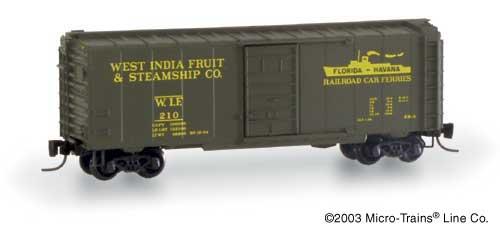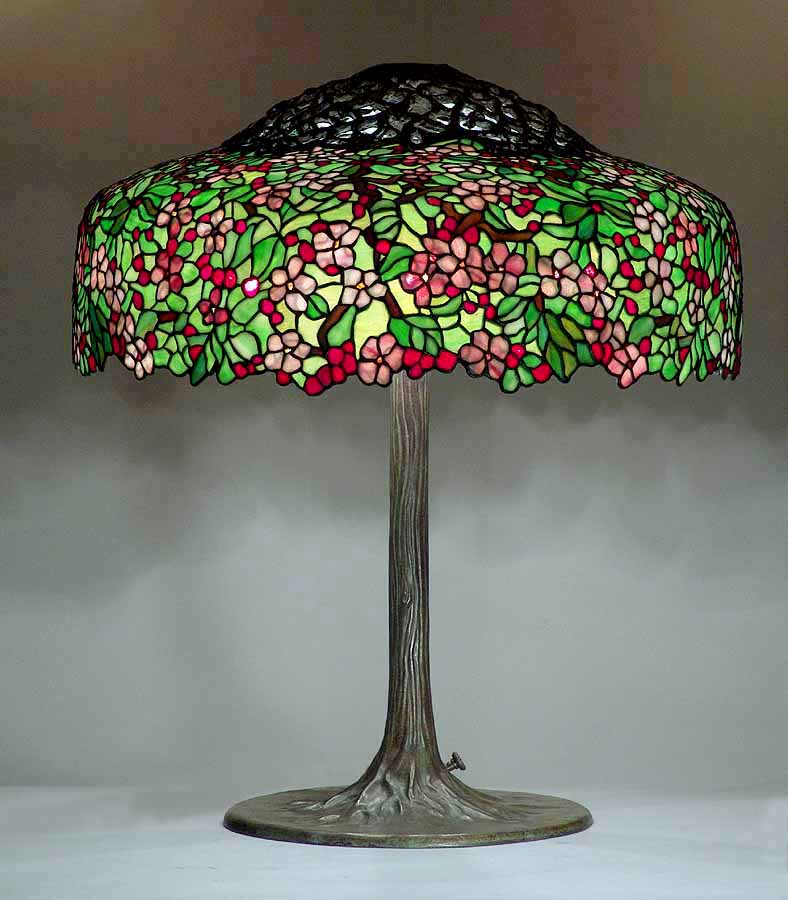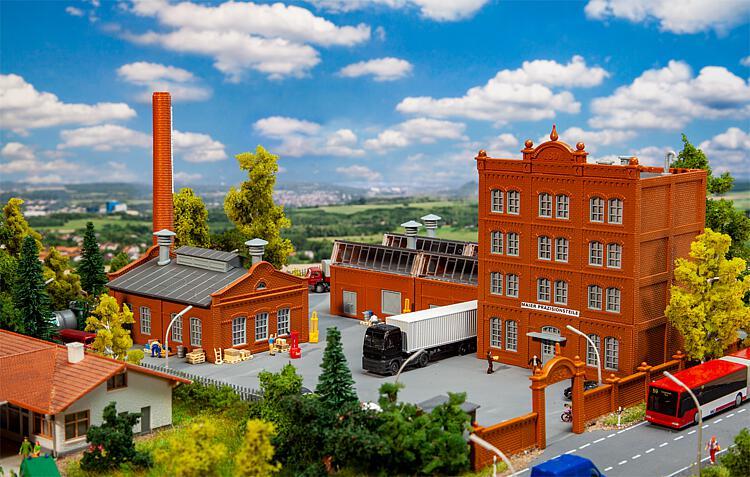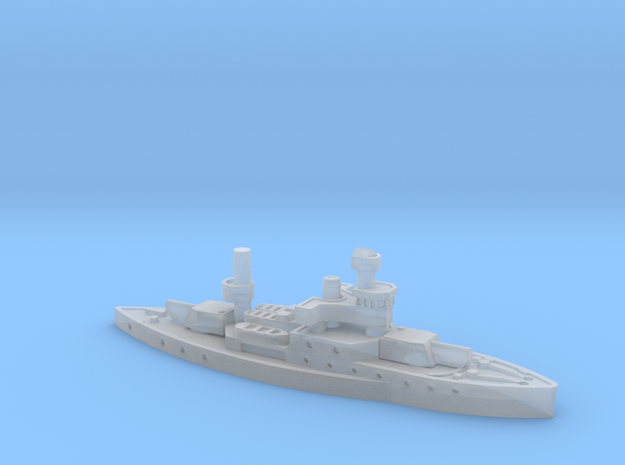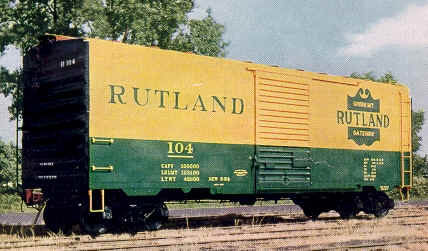Model Information: This is the Z-Scale version of the popular 020-series boxcar from the MTL N Scale line.
Prototype History: The 40' Boxcar is widely known as one of the most popular freight cars used by railroads as they transitioned from steam to diesel. In particular the Pullman Standard or PS-1 design was one of the most popular and was widely used by North American railroads. These boxcars were built beginning in 1947 and share the same basic design, with certain elements such as door size, door style or roof type varying among the different railroads and production years. When production of these cars ceased in 1963, over 100,000 had been produced.
So just what is a PS-1? Well the simple answer is it is any boxcar built by Pullman Standard from 1947 on. The design changed over the years – sometimes subtly, sometimes for customer request, and sometimes in a larger way. In general, most PS-1’s built from 1947 to 1961 share the same dimensions and basic construction techniques. These cars all had a length of 40′, a height of 10’5″ or 10’6″, welded sides and ends and roof of Pullman’s own design. The greatest variation was in the size and style of doors used. Pullman Standard also offered 50′ and later 60′ boxcars – also with the PS-1 designation.
So just what is a PS-1? Well the simple answer is it is any boxcar built by Pullman Standard from 1947 on. The design changed over the years – sometimes subtly, sometimes for customer request, and sometimes in a larger way. In general, most PS-1’s built from 1947 to 1961 share the same dimensions and basic construction techniques. These cars all had a length of 40′, a height of 10’5″ or 10’6″, welded sides and ends and roof of Pullman’s own design. The greatest variation was in the size and style of doors used. Pullman Standard also offered 50′ and later 60′ boxcars – also with the PS-1 designation.
Road Name History: 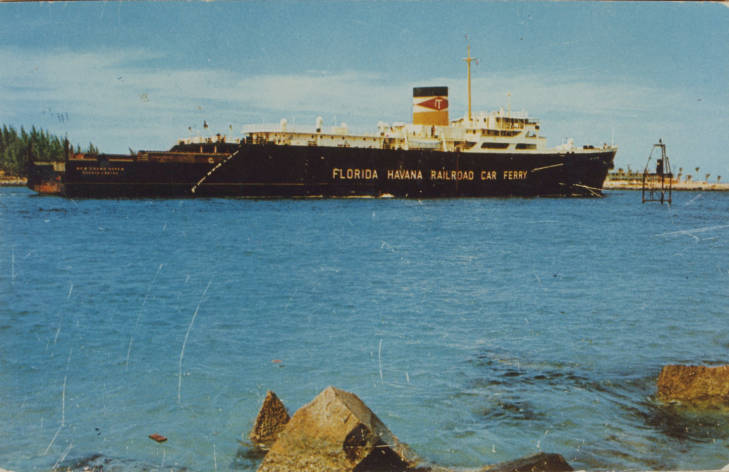 The West India Fruit and Steamship Company operated a railcar ferry service between the Port of Palm Beach, Florida, and Havana, Cuba, from shortly after World War II until deteriorating relations between the United States and Cuba culminated in the United States embargo against Cuba. The company offered six of its ferries for sale in June 1961, citing the fact that "trade had dwindled to the vanishing point" and service ceased in August 1961.
The West India Fruit and Steamship Company operated a railcar ferry service between the Port of Palm Beach, Florida, and Havana, Cuba, from shortly after World War II until deteriorating relations between the United States and Cuba culminated in the United States embargo against Cuba. The company offered six of its ferries for sale in June 1961, citing the fact that "trade had dwindled to the vanishing point" and service ceased in August 1961.
WIF&SS Co., in its role as a car ferry operator, acted as both a railroad and a steamship line. The service was described as “The Superior All-Rail Route to Cuba.” Freight from anywhere in North America could be routed to Cuban consignees “in the same cars and packaging in which it left point of origin in the United States.” This had advantages enumerated in WIF&SS Co. sales literature – reduced transit time, less handling of freight, and no repackaging.

WIF&SS Co., in its role as a car ferry operator, acted as both a railroad and a steamship line. The service was described as “The Superior All-Rail Route to Cuba.” Freight from anywhere in North America could be routed to Cuban consignees “in the same cars and packaging in which it left point of origin in the United States.” This had advantages enumerated in WIF&SS Co. sales literature – reduced transit time, less handling of freight, and no repackaging.
Brand/Importer Information: Micro-Trains Line split off from Kadee Quality Products in 1990. Kadee Quality Products originally got involved in N-Scale by producing a scaled-down version of their successful HO Magne-Matic knuckle coupler system. This coupler was superior to the ubiquitous 'Rapido' style coupler due to two primary factors: superior realistic appearance and the ability to automatically uncouple when stopped over a magnet embedded in a section of track. The success of these couplers in N-Scale quickly translated to the production of trucks, wheels and in 1972 a release of ready-to-run box cars.
Micro-Trains Line Co. split off from Kadee in 1990 to form a completely independent company. For this reason, products from this company can appear with labels from both enterprises. Due to the nature of production idiosyncrasies and various random factors, the rolling stock from Micro-Trains can have all sorts of interesting variations in both their packaging as well as the products themselves. When acquiring an MTL product it is very important to understand these important production variations that can greatly enhance (or decrease) the value of your purchase.
Micro-Trains Line Co. split off from Kadee in 1990 to form a completely independent company. For this reason, products from this company can appear with labels from both enterprises. Due to the nature of production idiosyncrasies and various random factors, the rolling stock from Micro-Trains can have all sorts of interesting variations in both their packaging as well as the products themselves. When acquiring an MTL product it is very important to understand these important production variations that can greatly enhance (or decrease) the value of your purchase.
Item created by: petecduffy on 2019-05-08 11:17:12
If you see errors or missing data in this entry, please feel free to log in and edit it. Anyone with a Gmail account can log in instantly.
If you see errors or missing data in this entry, please feel free to log in and edit it. Anyone with a Gmail account can log in instantly.


